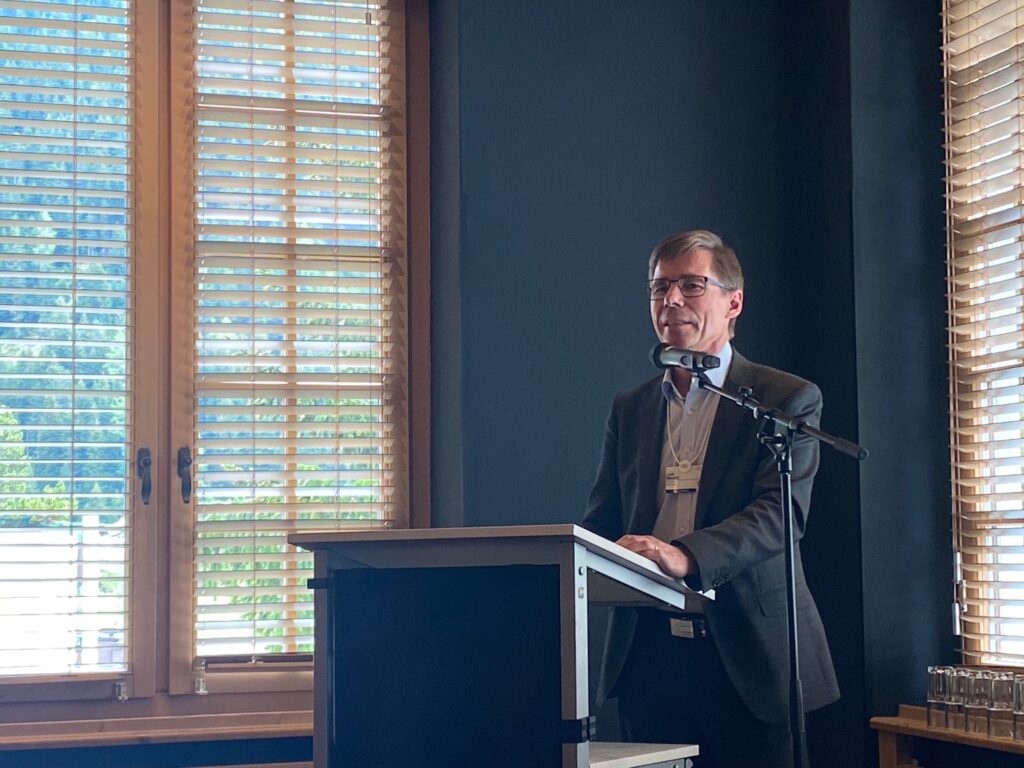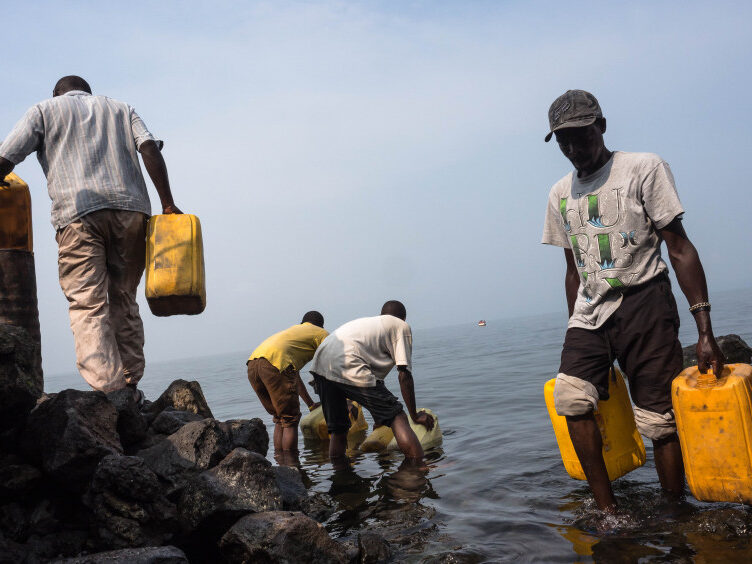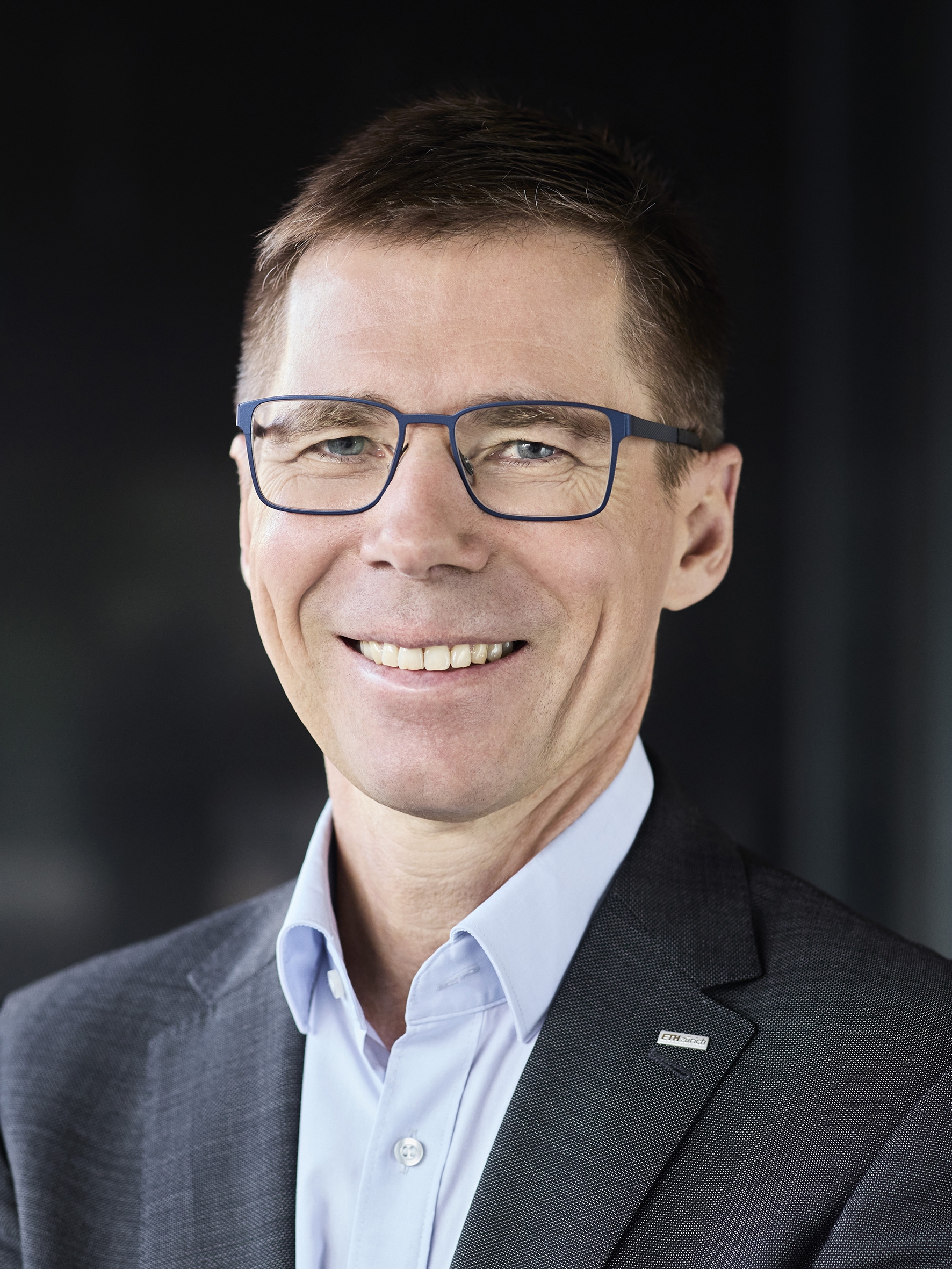On 25 May 2022, Lombard Oder Darier Hentsch (LODH) organised its traditional Lombard Odier lunch on innovative finance during the World Economic Forum’s Annual Meeting in Davos. This year, however, there was nothing traditional about the topics under discussion due to the current context, accelerated by the war in Ukraine. Humanitarian agencies need to provide support to millions of refugees and internally displaced persons on a scale not seen in Europe since World War II. As a result, a fundamental rethinking of humanitarian action is under way. What is the scope of the appropriate response? How can it be scaled? How can the capital needed be mobilized?
- Home
- Blog
- Development & Sustainability
- A New Humanitarian Response in the Making
A New Humanitarian Response in the Making
by Joël Mesot, 7 July 2022

Photo credit: Lombard Odier
As a co-host of the discussion along with Dr Peter Maurer, the President of the International Committee of the Red Cross (ICRC), and Patrick Odier, the Senior Managing Partner of Lombard Odier Group, our aim was to take stock of the current situation and, with the help of experts in the room, offer ideas on how progress can be achieved, to translate our ideas into action and tangible results.
The 3 Top Challenges for Relief Agencies
1. Addressing Basic Needs: Relief agencies are increasingly taking on responsibility for reconstruction and provision of basic services. Latent demand is enormous. From 2010 to 2018, the number of people without access to electricity declined only from 1.2 billion to 789 million. Even under policies that either were in place or planned before the start of the COVID-19 pandemic, an estimated 620 million people would still lack access to electricity in 2030. In 2019, 2.2 billion people lacked access to safely managed drinking water services according to the WHO and UNICEF. The World Economic Forum has found that water crises have been among the top five global risks in each of the last 7 years.
2. The Public Health Priority: One cannot talk about building a better world without addressing challenges to public health. One of the tasks now facing public health experts is to recover from setbacks related to COVID-19. A recent WHO report highlighted persistent disruptions at a considerable scale over one year into the COVID-19 pandemic, with 89% of the 135 countries and territories surveyed reporting one or more disruptions to essential health services. The whole paradigm of public health financing has been affected by the pandemic and is in dire need of more resources and new financing mechanisms.
3. New Funding Models: The public sector can accelerate the mainstreaming of innovative finance by providing capital and support that helps to de-risk innovative finance transactions, such as building safe drinking water infrastructure in Goma, Democratic Republic of Congo (DRC), for over 330’000 residents, a project currently under preparation in collaboration between the World Bank and the ICRC.
1. Addressing Basic Needs: Relief agencies are increasingly taking on responsibility for reconstruction and provision of basic services. Latent demand is enormous. From 2010 to 2018, the number of people without access to electricity declined only from 1.2 billion to 789 million. Even under policies that either were in place or planned before the start of the COVID-19 pandemic, an estimated 620 million people would still lack access to electricity in 2030. In 2019, 2.2 billion people lacked access to safely managed drinking water services according to the WHO and UNICEF. The World Economic Forum has found that water crises have been among the top five global risks in each of the last 7 years.
2. The Public Health Priority: One cannot talk about building a better world without addressing challenges to public health. One of the tasks now facing public health experts is to recover from setbacks related to COVID-19. A recent WHO report highlighted persistent disruptions at a considerable scale over one year into the COVID-19 pandemic, with 89% of the 135 countries and territories surveyed reporting one or more disruptions to essential health services. The whole paradigm of public health financing has been affected by the pandemic and is in dire need of more resources and new financing mechanisms.
3. New Funding Models: The public sector can accelerate the mainstreaming of innovative finance by providing capital and support that helps to de-risk innovative finance transactions, such as building safe drinking water infrastructure in Goma, Democratic Republic of Congo (DRC), for over 330’000 residents, a project currently under preparation in collaboration between the World Bank and the ICRC.

Democratic Republic of Congo: ICRC boosts access to safe water through partnerships and innovative financing solutions. Photo Credit: ICRC
What To Do, How To Do It, And By Whom
To keep pace, we need to add new business models to more traditional humanitarian action, including mobilising a large amount of fresh capital through new, innovative financing models. We identified three key dimensions of potential for progress.
First, the “What”: What do humanitarian agencies need to deliver in the field? After just eight weeks of combat, experts estimate that between €500 billion and €1 trillion of capital stock was destroyed in Ukraine. Syria, the DRC, Ethiopia and other countries need to be rebuilt as well. To rebuild infrastructure on a massive scale and achieve large-scale provision of basic services such as water, electricity, health, and education, we need to recognize that the currently growing hyper fragility around the world needs to be addressed head-on with new ways of working, collaboration, and new ways of financing.
Second, the “How”: Innovation and science are key to come up with new solutions, bring down the cost curve of existing solutions, and enable them to reach beneficiaries in remote or difficult-to-access environments. Moreover, the humanitarian sector is greening and capital needs are massive. In addition to bilateral and multilateral donor funds and philanthropic contributions, it will be necessary to bring private capital to bear.
Finally, the “Who”: The current scale of the humanitarian crises around the world necessitates raising the ambition level. To engineer and execute new solutions, the public and the private sectors can enable each other. Finance is at is best when it brings its expertise to price risk and structure investment solutions to the table and helps to build capital market to invest in frontier and conflict countries.
Our conclusion is that, while the macro context in 2022 is not forgiving, real progress is nevertheless under way. In the spirit of Davos, our joint task is to accelerate it, systematise it, and scale it. Speaking from my first-hand experience of the power of scientific and technological progress, science has a decisive contribution to make, by partnering with humanitarian agencies to develop new ways to unleash the power of engineering on humanitarian action.
(Speakers including Juan Coderque Galligo of the International Committee of the Red Cross, Dr Andrea Feigl of the Health Finance Institute, Anne-Laure Kiechel of Global Sovereign Advisory, and Rémy Rioux of the Agence Française de Développement, shared a wealth of insights into the changing landscape of humanitarian action and development. Lombard Odier’s Global Head of Philanthropy, Maximilian Martin moderated the session.)
To keep pace, we need to add new business models to more traditional humanitarian action, including mobilising a large amount of fresh capital through new, innovative financing models. We identified three key dimensions of potential for progress.
First, the “What”: What do humanitarian agencies need to deliver in the field? After just eight weeks of combat, experts estimate that between €500 billion and €1 trillion of capital stock was destroyed in Ukraine. Syria, the DRC, Ethiopia and other countries need to be rebuilt as well. To rebuild infrastructure on a massive scale and achieve large-scale provision of basic services such as water, electricity, health, and education, we need to recognize that the currently growing hyper fragility around the world needs to be addressed head-on with new ways of working, collaboration, and new ways of financing.
Second, the “How”: Innovation and science are key to come up with new solutions, bring down the cost curve of existing solutions, and enable them to reach beneficiaries in remote or difficult-to-access environments. Moreover, the humanitarian sector is greening and capital needs are massive. In addition to bilateral and multilateral donor funds and philanthropic contributions, it will be necessary to bring private capital to bear.
Finally, the “Who”: The current scale of the humanitarian crises around the world necessitates raising the ambition level. To engineer and execute new solutions, the public and the private sectors can enable each other. Finance is at is best when it brings its expertise to price risk and structure investment solutions to the table and helps to build capital market to invest in frontier and conflict countries.
Our conclusion is that, while the macro context in 2022 is not forgiving, real progress is nevertheless under way. In the spirit of Davos, our joint task is to accelerate it, systematise it, and scale it. Speaking from my first-hand experience of the power of scientific and technological progress, science has a decisive contribution to make, by partnering with humanitarian agencies to develop new ways to unleash the power of engineering on humanitarian action.
(Speakers including Juan Coderque Galligo of the International Committee of the Red Cross, Dr Andrea Feigl of the Health Finance Institute, Anne-Laure Kiechel of Global Sovereign Advisory, and Rémy Rioux of the Agence Française de Développement, shared a wealth of insights into the changing landscape of humanitarian action and development. Lombard Odier’s Global Head of Philanthropy, Maximilian Martin moderated the session.)

Photo Credit: ETH Zürich / Markus Bertschi
Joël Mesot is the President of ETH Zurich since 2019.
Joël Mesot studied physics at ETH Zurich, obtaining a doctorate in solid-state physics in 1992. He was awarded the ETH Zurich Latsis Prize in 2002 and the Swiss Physical Society (SPG) IBM Prize in 1995. After research residencies in France and the USA, he came to ETH Zurich and joined the PSI, where he became Head of the Laboratory for Neutron Scattering in 2004. He was director of the PSI from 2008 to 2018, and he has been a full professor of physics at ETH Zurich since 2008.
Professor Mesot is part of various national and international advisory bodies, including the Foundation Board of the “Switzerland Innovation” Park, the Marcel Benoist Foundation, the Global Network Advisory Board of the World Economic Forum (WEF) and the Governing Board CREATE (Singapore).
Joël Mesot studied physics at ETH Zurich, obtaining a doctorate in solid-state physics in 1992. He was awarded the ETH Zurich Latsis Prize in 2002 and the Swiss Physical Society (SPG) IBM Prize in 1995. After research residencies in France and the USA, he came to ETH Zurich and joined the PSI, where he became Head of the Laboratory for Neutron Scattering in 2004. He was director of the PSI from 2008 to 2018, and he has been a full professor of physics at ETH Zurich since 2008.
Professor Mesot is part of various national and international advisory bodies, including the Foundation Board of the “Switzerland Innovation” Park, the Marcel Benoist Foundation, the Global Network Advisory Board of the World Economic Forum (WEF) and the Governing Board CREATE (Singapore).


